
by J. Peter Pham, Ph.D.
World Defense Review columnist
Amid rumors that the otherwise moribund "Transitional Federal Government" (TFG) of Somalia might just bestir itself enough to attempt to break out of the tiny enclave in Mogadishu which Islamists insurgents have kept it and its supporters from the African Union Mission in Somalia (AMISOM) boxed, there is reason to be concerned that in this geopolitically critical corner of the world the United States and other governments have substituted wishful thinking for realistic assessment and muddled platitudes for policy objectives, thereby magnifying the potential damage when, as I warned earlier this year, this improvised approach falls apart.
Four points to consider:
First, the virtual entirety of the international community's Somali strategy—if the hodgepodge of policies can even be dignified with that name—has been predicated on an assumption about Sheikh Sharif Sheikh Ahmed's accession to the TFG presidency last year that has now been exposed as a false premise. As Bronwyn Bruton succinctly summarized in her recent Council on Foreign Relations Special Report Somalia: A New Approach (for which I had the privilege of being a member of the advisory committee):
In the months immediately following Sheikh Sharif's election, there was widespread optimism that the TFG would draw radical factions into the peace process—but those hopes rapidly proved illusory. Although Sheikh Sharif has attempted to create an Islamist identity for the TFG by promising to adopt sharia, he has been rejected as a Western proxy by the principal Islamist factions in Somalia. The TFG has also failed to generate a visible constituency of clan or business supporters in Mogadishu. Its survival now depends wholly on the presence of AMISOM forces, which further reinforces the perception that the TFG is a foreign implant.
Readers of this column will not be surprised by this. A fortnight after Sharif Ahmed's "election" by anersatz assembly that could not even convene inside Somali territory and which, as the TFG legislature, has not met again for nearly a year for want of a quorum, I warned here that while an unexpectedly turnaround could not be ruled out a priori, it was highly unlikely that anyone—much less someone with as checkered a past as Sharif Ahmed—could prevent the whole transitional framework from unraveling. The fact that, one year after its "makeover," the TFG still has yet to even establish a mere presence in—much less control over—a majority of Mogadishu's sixteen districts is a sobering reminder of its limitations. As the director of one Somali nongovernmental organization told me last year, "Muhammad the prophet could be in charge and the result would be the same."
Second, the very notion of a unitary national government could succeed given the overall dynamics of the ongoing devolution of Somalia demonstrates nothing so much as the wholesale ignorance of its proponents, both with respect to Somali culture and history and Somali political developments over the last two decades. Events over the course of the last year confirm the trend. As I noted last year, the inhabitants of the northwestern region of Somaliland remains committed to their quest for recognition of the independent state they had before joining with the former Italian colony of Somalia in a 1960 union that they regretted for the ensuing three decades. Elections, expected later this year, will only consolidate this effective schism as all three political parties contesting the polls agree on the independence of Somaliland from the former Somali Democratic Republic. The northeastern region of Puntland was, when I last examined the subject, still committed to being a part of a future federal Somalia, although its people reserved their right to negotiate the precise terms of any union. Since then, despite the fact that a fellow Darood/Harti clansman, Omar Abdirashid Ali Sharmarke, is the designated "prime minister" of the TFG, in recent months Puntlanders have edged closer to formally abandoning the scuttled (and apparently sinking) Somali ship of state. In late December, the regional parliament voted unanimously to adopt a distinctive flag (hitherto the flag of Somalia had been used), coat of arms, and anthem.
All of this means that Somali policies which are wedded to reestablishing a centralized government around the TFG are irrelevant. Consider just the raw demographic data. Of the estimated 9 million Somalis in the world, more than one million of them are refugees or permanently living in the diaspora, about 3 million live in Somaliland, and another 2.4 million in Puntland. Thus TFG and its struggles with the Islamists—whether of the Harakat al-Shabaab al-Mujahideen ("Movement of Warrior Youth," al-Shabaab) or the Hisbul Islam ("Islamic party") factions—really only affect at most less than one-third of the total Somali population, all of whom live in the southern and central Somalia. This area accounts for about only one-third of the territory of the Somali state before its collapse in 1991. If the United States and the international community are interested in stability in the Horn of Africa—and they should be given the links between Islamists there and those in Yemen, especially al-Qaeda in the Arabian Peninsula (AQAP)—then what is needed is something more comprehensive than the affirmation made by Assistant Secretary of State for African Affairs Johnnie Carson in a special briefing on Somali policy two weeks ago that "U.S. policy in Somalia is guided by our support for the Djibouti peace process," a process that ignores two-thirds of the relevant geopolitical space and most of its effective authorities.
In point of fact, about the only Somalis who have been interested in signing up for a centralized Somali government are those who have some ulterior motive, usually pecuniary, to gain by the allegiance—which only lasts as long as the relationship continues to be lucrative. Take the case of the deal struck last week by the TFG with some leaders of the Ahlu Sunna wal-Jama'a (roughly, "[Followers of] the Traditions and Consensus [of the Prophet Muhammad]") militias which have opposed al-Shabaab and its allies in the central regions of Somalia. The ASWJ leadership will "join" the TFG insofar as they get to appoint five ministers, one minister of state, five deputy ministers, ten directors general, three ambassadors, twelve other diplomats, and the deputy commanders of the army, national police, and security agency. While the deal signing was duly witnessed by the Ethiopian foreign minister, the chairperson of the African Union Commission, and the special representative of the United Nations secretary-general, the accord is not quite what it was spun as. For one thing, while ASWJ has several thousand members, they are—notwithstanding Ethiopian efforts to train them professionally and equip them properly—largely just clansmen mustered on an ad hoc basis, rather than a standing force that could be incorporated into the TFG's armed forces. For another, the TFG's ministries are virtual entities, so the political nominations are nothing more than licenses to steal the money that outside donors throw at the regime—recall that two of the "ministers" killed by the December 2009 suicide bombing of the Shamo Hotel in Mogadishu, "Minister of Higher Education" Ibrahim Hassan Adow and "Minister of Education" Ahmed Abdullahi Wayel, held overlapping portfolios which were all the more redundant considering that neither of them actually ran any schools, while two of the "ministers" wounded, "Minister of Tourism" Mohamed Hussein Said and "Minister of Sports" Saleban Olad Roble, hold titles which are almost black humor given the grim reality of Somali life. In fact, the deal has already been repudiated by a number of ASWJ leaders—including its number two, Sheikh Hassan Sheikh Abdi—who apparently weren't given their due in the division of spoils.
Nor will the addition of additional African peacekeepers—according to a report in the U.S. Armed Forces newspaper Star and Stripes, some additional 1,700 Ugandan troops were flown into Mogadishu last week by American contractor DynCorp—alter this dynamic. In fact, even with the reinforcements, it is beyond delusional to think that such a modest contingent of Africans can succeed where the infinitely more robust UNITAF and UNOSOM II forces, with their 37,000 and 28,000 troops respectively, including at one point more than 25,000 U.S. personnel, failed in the 1990s against a less capable foe than the Islamist insurgents opposing the TFG.
Third, even if it was an effective government—and it isn't (more on this below)—there is little evidence that Sharif Ahmed's regime is a desirable partner in the least. While professing moderation during his many peregrinations abroad, the TFG head promotes, as The Economist pointed out last year, "a version of sharia law whereby every citizen of Somalia is born a Muslim and anyone who converts to another religion is guilty of apostasy, which is punishable by death." Contrast this with the situation in Somaliland, a largely democratic, if struggling, polity where Islamic jurisprudence is just one source of legal norms, alongside civil legislation and customary Somali law (xeer), or in Puntland where, notwithstanding its other difficulties, religious extremism is resisted.
Sharif Ahmed does not even have the good manners to keep his noxious ideology at home, but with an almost reckless disregard to the fact that his very continued existence is owed to the good will of the international community, he has chosen to rub America's nose in it. In November, the TFG appointed Omar Jamal, a Minneapolis Somali advocate, to the post of first secretary at the Permanent Mission of the Somalia at the United Nations in New York. The new job comes just in time for its new incumbent—who has been dubbed "the Al Sharpton of the Twin Cities' Somali community"—since it includes diplomatic immunity that will likely stay his deportation (a federal jury convicted him in 2005 of lying to immigration officials and he has exhausted his appeals). Then in February, Sheikh Sharif appointed as his "special envoy to the United States of America" one Abukar Abdou Arman, a former president of the Columbus, Ohio, chapter of the Council on American-Islamic Relations (CAIR). While Arman regularly posts on the Huffington Post—before his elevation he had floated a proposal there to "offer confidence-building amnesty to key individual players who are on the US terrorist list, as these lists further radicalize people" as well as screeds accusing Israel of being "devoid of any conscience" and comparing Israeli leaders to "Pharaoh and Hitler"—he doesn't seem to be as concerned about the free speech of those who disagree with him, earning at one point a public rebuke from the Columbus Dispatch for his "effort to suppress the discussion ... by labeling it as bigotry and hatemongering."Lovely. Perhaps those who would hold the TFG capo up as a partner might want to consider what these two nominations say about what he really is.
Fourth, one might even hold one's nose and engage with an unsavory partner if the latter were at least effective. Alas, "effective" is not a term which can be used alongside the TFG, support to which is more likely to have the reverse consequence from what is intended. In his briefing, Ambassador Carson acknowledged that the United States has "provided limited military support to the Transitional Federal Government." Other countries, including a number of our European Union allies, have provided training and equipment to the TFG's forces. Unfortunately, the United Nations Monitoring Group on Somalia recently delivered a scathing report to the Security Council on all the good that this assistance has been. The UN analysts' findings are tantamount to an indictment not just of the TFG, but of any policy that relies on that outfit:
The military stalemate is less a reflection of opposition strength than of the weakness of the Transitional Federal Government. Despite infusions of foreign training and assistance, government security forces remain ineffective, disorganized and corrupt — a composite of independent militias loyal to senior government officials and military officers who profit from the business of war and resist their integration under a single command. During the course of the mandate, government forces mounted only one notable offensive and immediately fell back from all the positions they managed to seize. The government owes its survival to the small African Union peace support operation, AMISOM, rather than to its own troops ...
The security sector as a whole lacks structure, organization and a functional chain of command—a problem that an international assessment of the security sector attributes to "lack of political commitment by leaders within the Transitional Federal Government or because of poor common command and control procedures" ... To date, the Transitional Federal Government has never managed to deploy regimental or brigade-sized units on the battlefield.
The consequences of these deficiencies include an inability of the security forces of the Transitional Federal Government to take and hold ground, and very poor public perceptions of their performance by the Somali public. As a result, they have made few durable military gains during the course of the mandate, and the front line has remained, in at least one location, only 500 meters from the presidency.
As the UN Monitoring Group exhaustively documented, about the only thing the members of the TFG do well—aside from losing battles—is to engage in criminal activity. The UN investigators confirmed what Ifirst reported here last fall, that a large proportion, if not the majority, of U.S. military assistance to the TFG, including some 94 tons of infantry weapons and ammunition to date, simply ends up being sold on the open market. Moreover, it seems that TFG officials have extended their corruption from simple misappropriation of resources to the far more dangerous realm of visa fraud:
Visa fraud involving Transitional Federal Government officials and members of parliament is among the most brazen. Politicians claim that they need to travel on official business, such as an invitation to address a diaspora group or attend a conference, accompanied by a bogus delegation of government officials (and occasionally family members). Such requests are typically accompanied by a note verbale or other introductory document from the Somali Embassy, often with a supporting letter from a minister, the Speaker of Parliament or one of his deputies. If the request meets with approval, the other members of the delegation pay as much as $15,000 each for the opportunity to travel. Many do not return ...
Monitoring Group investigations have linked a number of senior officials of the Transitional Federal Government to the practice of visa fraud, including the Deputy Prime Minister and Minister of Fisheries, Abdirahman Ibrahim Adan Ibbi, the Minister for Women's Affairs and Gender, Fowsiya Mohamed Sheikh, and the Minister of Constitutional Affairs, Madoobe Nunow Mohamed. The Constitutional Minister is a repeat offender: in April and June 2009 he organized delegations to attend a constitutional training workshop in Germany convened by a prestigious institution, as part of the UNDP-coordinated constitution-building activities in Somalia. The delegations included members of the Independent Federal Constitutional Commission, private individuals masquerading as ministry officials, and relatives of the Minister. At least eight of these individuals, including Nunow's son, subsequently "disappeared". With the exception of his relatives, the Monitoring Group has learned that those who did not return paid the Minister $14,000 per visa. Subsequently, five of the individuals claimed political asylum in the Netherlands. Nunow has since submitted similar requests to other European embassies in Nairobi.
One of the most prominent "brokers" is a Somali member of parliament and former member of the African Union Parliament named Abdiaziz Abdullahi Mohamed "Abdi-hukun". A Kenyan resident since 1997 and Somali member of parliament since 2004, Abdiaziz possesses an African Union passport, despite having lost his seat in the African Union Parliament more than five years ago, as well as a Swedish travel document. Together with another Swedish Somali resident, formerly based in Kismaayo with Al-Shabaab, Abdiaziz facilitates the movement through Kenya of Somali diaspora youth seeking to join Somali armed opposition groups.
In April 2009, Abdiaziz requested visas from the Italian Embassy for two members of his family. The visas were issued and the men travelled to Milan, but subsequently left Italy with fraudulent papers for a third country. Monitoring Group investigations offer grounds to believe that both men were in fact members of an armed opposition group—allegedly Al-Shabaab.
These allegations are especially worrisome when one couples them with the evidence produced by the Monitoring Group that Al-Shabaab—which, incidentally, achieved recognition earlier this month as a "proscribed organization" under the Terrorism Act by the British government and as a "listed terrorist group" by the Canadian government, in addition to terrorist designations previously made by the United States and Australia—and Hisbul Islam as well as Somali pirates have exploited these connections to facilitate the travel of members to Western countries. Given both the increasing internationalization of al-Shabaab as well as the group's recent public acknowledgement of an alliance with al-Qaeda, one cannot afford to ignore the threat posed by the TFG's criminal disregard for the security of the members of the international community.
Given this reality, it should come as no surprise that the approach taken by the United States and other countries with respect to Somalia is more than a tad bit schizophrenic. While the media is wont to describe the TFG—which, it should be recalled, is just the fifteenth in a succession of failed interim regimes since the overthrow of the dictatorship of Muhammad Siyad Barre—as the "internationally recognized government" of Somalia, the fact is its legal recognition as a sovereign subject of international law is more the exception than the rule. While the United States, for example, never formally severed relations with Somalia after shutting down the American Embassy there in 1991, neither has it officially recognized any of the fifteen transitional governments, including the current TFG. The State Department website merely states: "The United States maintains regular dialogue with the TFG and other key stakeholders in Somalia through the U.S. Embassy in Nairobi, Kenya." In fact, the lack of affirmative de jure recognition for the TFG is presumed by the introduction in October 2009 of aproposed Congressional Resolution by Congressman Donald Payne, chairman of the Africa Subcommittee of the U.S. House of Representatives, urging "the Obama Administration to recognize the TFG and allow the opening of an official Somali Embassy in Washington." The clear implication is that the United States Government accords the TFG something less than normal diplomatic recognition as a sovereign. In fact, this point was formally conceded in early 2010 by the Obama administration when, in a brief filed with the U.S. Supreme Court in a case involving Siyad Barre's defense minister, Mohamed Ali Samantar, the Solicitor-General of the United States and the Legal Advisor of the State Department acknowledged that "since the fall of that government, the United States has not recognized any entity as the government of Somalia" (full disclosure: Professors Lee Cassanelli of the University of Pennsylvania, Ioan M. Lewis of the London School of Economics, Gérard Prunier of the University of Paris, and Hussein Bulhan of the University of Hargeisa filed a joint brief as amici curiae in support of Samantar's victims).
The approach taken by the United States is in line with that taken by other nations. The British Foreign and Commonwealth Office's website states: "Since the fall of the Siad Barre regime in 1991 there have been no formal diplomatic links between the UK and Somalia." And the TFG's former "foreign minister," Ismail Mohamud Hurre, a.k.a. "Buba," and its "defense minister," Yusuf Mohamed Siad, a.k.a. "Inda'adde," have been arrested in recent months in Kenya and Uganda, respectively, demonstrating just how little regard its neighbors hold for the TFG as the government.
Nonetheless, the lack of diplomatic recognition has not stopped some in Washington and other Western capitals from looking for ways to deepen their hitherto fruitless involvement with the TFG. Although Ambassador Carson emphasized that "the United States does not plan, does not direct, and does not coordinate the military operations of the TFG, and we have not and will not be providing direct support for any potential military offensives," there is no shortage of individuals inside the Beltway who, making up with stubborn bellicosity for what they evidently lack in strategic vision, are pushing to throw America's precious military resources directly behind Sharif Ahmed and his gang. And, after he took his peripatetic sideshow to London two weeks ago—one can hardly blame the chap since apparently no one wants to be in Mogadishu these days, even if one claims to be the Somali president—there seem to be a few Whitehall mandarins who have taken up the siren call.
Thus, the muddled message seems to be we will arm you in the hope that you make something of yourself because we don't have any other ideas at the moment, but we won't recognize you just in case you utterly embarrass us—not much of a strategy as far as it goes. What is needed is a fundamental change in approach. If, after more than five years since its inception, hundreds of millions of dollars in foreign aid, and the lives of hundreds of valiant Ethiopian, Ugandan, and Burundian officers and enlisted men who have given their lives defending it when its own ministers won't commit their own sons to the effort, the TFG is still unable to rally to its banner the very people it purports to represent, there is nothing that any outside power can or should do to impose it upon clearly unwilling Somalis. Rather, it is high time that the United States and Somalia's other international partners look after their own legitimate interests and refocus their energies on minimizing and containing the harm caused by the interim regime's ineffectiveness and corruption, while strengthening those functional parts of the former Somali state and integrating them into the framework for regional security and stability. To put it in terms that would resonate with the traditional pastoral Somali, the stakes are simply too high for us to risk a bet on a camel that, if not quite dead, is certainly crippled.
— J. Peter Pham is Senior Fellow and Director of the Africa Project at the National Committee on American Foreign Policy in New York City. He also holds academic appointments as Associate Professor of Justice Studies, Political Science, and African Studies at James Madison University in Harrisonburg, Virginia, and non-resident Senior Fellow at the Foundation for the Defense of Democracies in Washington, D.C. He currently serves as Vice President of the Association for the Study of the Middle East and Africa (ASMEA).
Dr. Pham has authored, edited, or translated over a dozen books and is the author of over three hundred essays and reviews on a wide variety of subjects in scholarly and opinion journals on both sides of the Atlantic. In addition to the study of terrorism and political violence, his research interests lie at the intersection of international relations, international law, political theory, and ethics, with particular concentrations on the implications for United States foreign policy and African states as well as religion and global politics.
Dr. Pham has testified before the U.S. Congress on numerous occasions and conducted briefings or consulted for the U.S. and foreign governments as well as private firms. He has appeared in various media outlets, including CBS, PBS, CBC, SABC, VOA, CNN, the Fox News Channel, MSNBC, National Public Radio, the BBC, Radio France Internationale, the Associated Press, Reuters, The Wall Street Journal, The New York Times, The Washington Post, The Washington Times, USA Today, National Journal, Newsweek, The Weekly Standard, New Statesman, and Maclean's, among others.
© 2010 J. Peter Pham
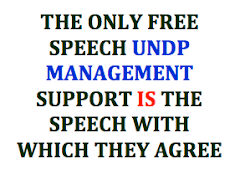



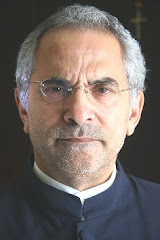

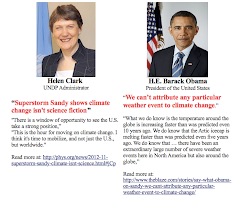














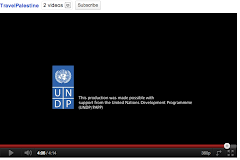

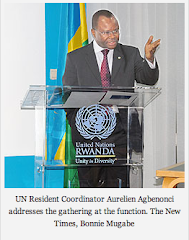



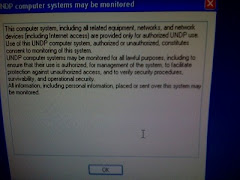

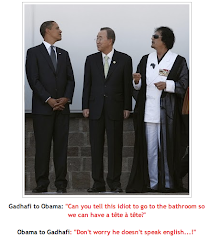
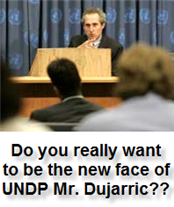






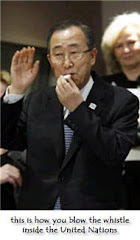
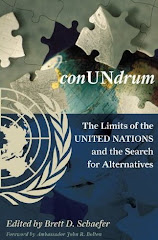

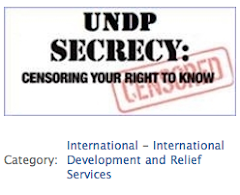



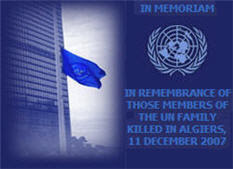


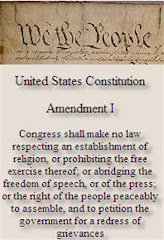
No comments:
Post a Comment